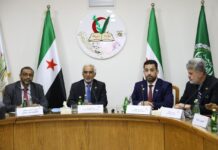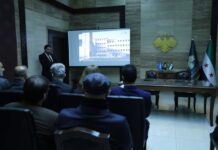
The humanitarian crisis in Syria has reached critical levels, with millions of children in desperate need of aid following the collapse of the Assad regime and the country’s ongoing challenges, UNICEF warned Wednesday.
According to UNICEF Regional Director for the Middle East and North Africa, Edouard Beigbeder, 7.5 million children in Syria require humanitarian assistance, with 6.4 million in urgent need of protection services. Beigbeder’s statement followed his visit to several governorates, where he witnessed first-hand the impact of deepening insecurity and economic challenges on Syria’s youth.
Education Crisis
Beigbeder highlighted that 2.4 million children are out of school, with another million at risk of dropping out. This educational crisis places children in danger of exploitation through child labor, early marriage, and recruitment into armed groups. “It is essential to invest in education and empower teachers to enhance social cohesion and peace,” Beigbeder said.
Ailing Healthcare
The state of Syria’s healthcare system remains dire, with 40% of hospitals and health facilities either partially or completely out of service. Beigbeder described the country’s healthcare situation as “fragile.”
Additionally, 13.6 million people, including children, need water and sanitation services, while 5.7 million people – 3.7 million of them children – require food assistance. Beigbeder urged the international community to support Syria’s recovery by ensuring sustainable services for the country’s children and youth. He also emphasized the importance of a comprehensive political transition to guarantee the rights of Syria’s 10 million children.
Children Under Threat of War Remnants
UNICEF also raised alarm over the deadly risks posed by landmines and unexploded ordnance, which have killed more than 1,260 children since 2020. These remnants of war continue to prevent children from attending school and accessing health care. UNICEF called on all parties and international donors to increase humanitarian aid immediately while ensuring safe and unhindered access to affected families.
Poverty & Economic Struggles
The World Bank has reported that more than 27% of Syrians, or approximately 5.7 million people, live in extreme poverty after 13 years of devastating conflict and destruction by the regime. Economic crises, fueled by war and exploitation under the Assad regime, have left millions unable to meet their basic needs. “More than a decade of conflict has led to a significant deterioration in the well-being of Syrian families,” the World Bank noted in a recent report.
STG’s Plans for Recovery
The Syrian Transitional Government (STG), which took control following the fall of the Assad regime on Dec. 8, has outlined strategies to address the humanitarian and economic challenges. Syrian Minister of Agriculture Mohammad Al-Ahmad announced plans to secure flour and vegetable supplies and provide loans to farmers under easy terms.
The Ministry of Agriculture has also directed its specialized centers to distribute fruits and seeds at reduced prices to alleviate financial burdens on farmers and consumers. Despite these efforts, Al-Ahmad acknowledged significant challenges facing the agricultural sector, including a lack of financial resources, agricultural tools, and fuel. The sector, a cornerstone of Syria’s economy, has suffered substantial damage during the years of conflict.
Syria’s Children an Investment in the Future
As Syria navigates its transition, international organizations and the STG face immense challenges in rebuilding a nation devastated by decades of war and mismanagement. However, there is hope that sustained international support and local recovery initiatives will provide relief to millions of Syrians, particularly the nation’s vulnerable children.
Tom Fletcher, the UN Emergency Relief Coordinator, reiterated the urgency of the situation, stating that 17 million Syrians – 70% of the population – are in need of assistance. “The children of Syria are the future,” Beigbeder said. “Ensuring their rights and well-being is essential to building a peaceful and prosperous nation.”








